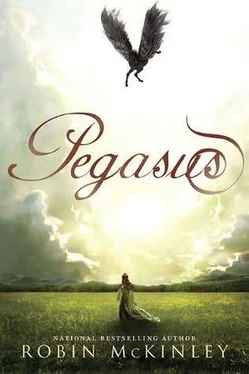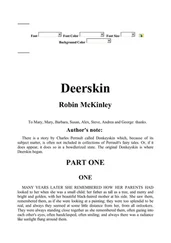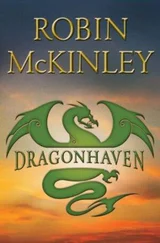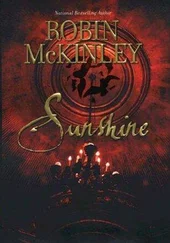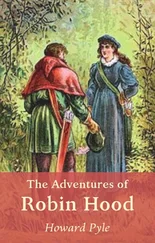I’ll need some clothes, she said.
Right away? Surely it’s warm enough in this sun even without any hair? Never mind. I’ll get your dad to show me what to bring, and I’ll leave it here.
She had a glorious bath, made only slightly less glorious by an ignoble fear that some pegasus or other would forget that humans like privacy while they bathe and interrupt her; there was nothing (she decided) like being entirely surrounded by pegasi to make a human feel stringy and pathetic, naked as a rat’s tail. She wondered what the towels were for when there weren’t any humans to use them as towels—since there never were any humans to use them as towels, and they felt soft with some kind of use. Perhaps the pegasi had other things that needed drying. Maybe baby pegasi had baths; perhaps they dried the dishes after a banquet. She looked at the towel she wrapped herself up in: it had the same kind of soft, close, near-invisible weaving that all the pegasus fabric she’d ever seen did, but it was thick and heavy, like fine wool, but smoother than any wool she knew.
Her bag of clothes was hanging on a branch as promised and, assuming she’d be warned in advance of any formal occasions, she dressed in tunic and trousers, and then took hold of the bush and rattled. She could smell food, and she was hungry again.
That first day was all about her father, which suited Sylvi very well. Her father did all those royal and gracious and diplomatic things better than she did, the catching on to unknown customs and unusual situations—he, like Danacor was doing now, had travelled a great deal when he was the sovereign’s heir, both round his own country and outside it. Sylvi was more than happy to stay in his shadow and let him take the brunt of the attention—and perhaps pick up what she could. He was leaving her here....
They went for a long walk for most of that day, the two humans, Lrrianay and Ebon and a dozen more pegasi of those the visitors had met the evening before; they stopped often, and there were cushions for the humans, and food and drink were offered. Sylvi found the strangeness much more tiring than the walking. But she was glad to see that they walked on well-worn paths. I told you, said Ebon. We walk a lot.
Everywhere they went there were more groups of pegasi, who came as if from nowhere to see them—but they always appeared from round corners of rock, or up steep paths or through trees, never flying overhead. The pegasi would walk up to them, slowly, heads and tails raised and wings a little arched in what Sylvi thought of as their best-foot-forward pose; often they had ribbons or flowers in their manes, and intricately embroidered siragaa and nralaa around their necks. They would bow their heads and lift one curled foreleg and then the other, setting each down very precisely; a few had ribbons around their ankles. Most of them said “welcome”; a few said a sentence or two. Sylvi noticed that they hummed through the breaks between words: welhummmmfrennnnhuuumaannnnnnn.
Very occasionally Lrrianay would make a quick open-and-shut gesture with a feather-hand, and a few murmured words, and a pegasus might then touch the face of one or both the humans as he or she also said a few words. There was for Sylvi a funny hazy quality to the entire experience of meeting so many new pegasi, and it grew hazier yet when a pegasus touched her, as if the attempt at communication was turning into a cloud, like water turns into steam when heated.
The visitors’ party paused the longest in a shfeeah at the edge of a wood; Sylvi had no warning that this glint of sunlight through the trees was going to be anything other than another meadow. But instead there was a series of small fields, tucked together as cleverly as the pieces of a sky hold to take advantage of the land’s contours, with the early spring crops showing in neat rows of green, and a few small low buildings together in a cluster which had, Sylvi saw at once, not nearly enough walls.
That evening’s banquet was very grand indeed. There were long tables with what looked like banners laid over them—longer, wider and more elaborate versions of the siragaa. Each was a different colour, or more than one colour swirled together, and many had cut or scalloped edges, and most were embroidered, with birds and leaves and flowers, as well as many other symbols Sylvi did not recognise. There were candlesticks of wood and stone, and a scattering of small sculpted shapes, mostly of creatures—deer, foxes, bears, badgers, hedgehogs, squirrels, erenooms, fornols, pegasi—curled up sleeping. The tables looked magnificent even before the bowls of food—mostly wooden and beautifully carved, and some copper or copper-bound, and a few silver platters she recognised as human gifts—were put on them. There were more banners threaded through the branches of the trees at the edge of the meadow where the tables were set. The spiral of torches had been taken away, although there were poles with fresh torches set round the edges of the meadow. She noticed this evening, as she had not the evening before, that the torch-poles were also sculpted, with long curling lines not unlike the flow of a pegasus tail.
Sylvi had watched a little of the setting-up process—it was already well begun when they came back from their day’s walk. The tables were stored in a kind of pavilion similar to the shfeeah buildings and near the stream, but they were brought out to stand in the meadow the human king’s party had flown into the evening before. The tables were moved by pairs of pegasi again wearing harness. Poles were laid on the floor of the pavilion and run between the legs of the tables. The harnessed pegasi again knelt, so that the little hands of other pegasi had only to lift the poles high enough to thread them through the harness, sometimes assisted by a boost from a strong pegasus foreleg. Then the kneeling pegasi stood up, and the poles took the weight of the table. Even the bowls of food had to be filled gradually, in deference to the weakness of pegasi hands, or moved by a carrying frame. There was a flagstone path to the edge of the stream and low knapped-stone platforms there for food preparation, but the exquisite little flint knives, wooden chopping boards and other tools (including baskets to carry the rubbish to the mulch-and-compost area) were kept in the pavilion. But everything the pegasi did they did as if they were dancing, as if they would do it this way even if their hands were as strong as humans’.
There were even two chairs, one very tall one at the narrow head of one of the tables, and a not very much shorter one at the head of the table next to it, and you climbed up two steps to sit in them, so you were no shorter than the standing pegasi.
For the banquet the pegasi all wore ribbons or flowers plaited into their manes and tails, or feathers some other colour than their own wings tucked into the plaits, and a few had ribbons around their ears and ankles as well. The royal pegasi wore flowers but also wide silky siragaa spangled with tiny shining gems; Hibeehea was wearing two nralaa on two damask ribbons.
Sylvi wore the one formal dress she had brought with her, an almost-pegasus russet, long and very full and flowing, with a pegasus-chestnut red-brown garnet on a pegasus-gold chain around her neck. She twisted her hair onto the top of her head and held it there by a pin whose head, no bigger than her littlest fingernail, was pegasus-made, glinting with silver netting and splinters of gems so small you only knew they were there by their sparkle: Ebon had given it to her on her fifteenth birthday.
Can’t I give you anything? s he’d said, as she said to him every year on her birthday.
Читать дальше
